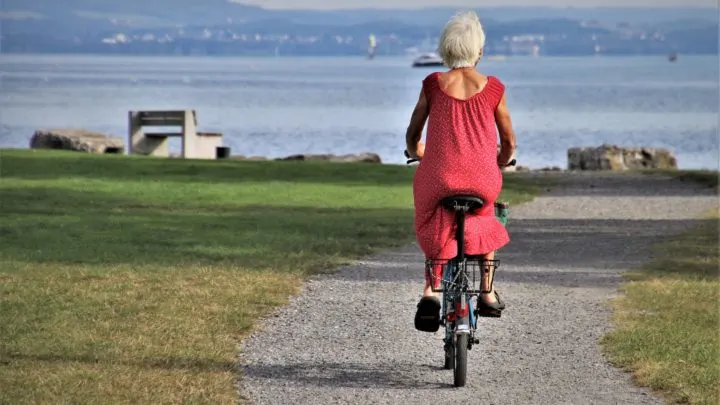Senior citizens centers are great resources for older people living on a fixed- or low-income budget.
Senior citizens centers offer a wide variety of programs, resources, and activities for older folks that are looking to have fun, connect with a community, or find help. There are thousands of senior citizens centers around the United States and, most likely, your community has at least one nearby.
In this article, we’ll discuss what senior citizens centers are, centers’ resources for low-income seniors, what programs they may offer, and how to find one in your area.
Senior Citizens Centers
A senior citizens center is a community center where older adults can come together to socialize, exercise, learn, engage in educational opportunities, and find resources that may help them. Oftentimes, these centers are funded by cities or towns, however, some facilities also receive state or federal funding.
Most senior citizens centers allow anyone age 50 or older to participate in their activities or programs. In total, the National Council on Aging estimates there are more than 11,000 senior citizens centers around the United States and help more than 1 million older folks. The National Council on Aging notes that about 70 percent of senior citizens center participants are women and that they average about 3 visits per week that are about 3 hours.
Programs and educational opportunities aren’t the only perks of senior citizens centers. The National Council on Aging adds that research has found participants at senior citizens centers have higher levels of health, social interaction, and life satisfaction when compared to their peers.

Low-income seniors
Unfortunately, the United States is facing a crisis with its seniors as a large portion of the population is growing to the age of retirement and is considered to be low-income. That challenge is expected to continue growing as Baby Boomers are entering senior living facilities at record numbers and, by 2025, more than 65 million people in the generation will surpass age 65.
The National Council on Aging reports that about 40 percent of U.S. seniors age 60 and older earn less than $30,000 per year, according to data from the U.S. Census Bureau. In addition, about 46 percent of seniors are not confident that their income will be enough to cover their monthly expenses in the next five to 10 years.
Fortunately, there are many programs and benefits available to seniors that can help lay the foundation of a happy, healthy life. The National Council on Aging, however, notes that there are still millions of eligible seniors who do not take advantage of financial aid programs such as Medicare, Medicaid, HUD Public Housing, Meals on Wheels, and more.
Senior Citizens Centers programs and benefits
As we mentioned above, there are a wide variety of benefits, resources, and activities at senior citizens centers.
These range from games and computer classes to health services and financial assistance programs. Every senior center is different, and programs will vary from place to place. Let’s take a look at a few of the common programs and resources you may find at a seniors citizens center near you.
Medicare or Medicaid assistance
Medicare is a federally-funded health insurance program for people who are 65-years-old and up. Medicaid is a federal health program that offers health assistance for low-income adults, children, people with disabilities, and seniors.
While your senior center likely does not manage your area’s Medicare or Medicaid, it may have resources for you to learn more about the programs and how to access them in your community. Ask your senior center if they offer any help in connecting you with Medicare or Medicaid services.
Housing assistance
Your senior center may be able to find you resources that can help with your housing.
The U.S. Department of Housing and Urban Development offers a variety of programs that can help low-income seniors, including reverse mortgages for seniors, various housing programs, housing counseling, and rental assistance. Check out this page from HUD on what services it offers to low-income seniors to see if any of their programs might be applicable to your situation. Ask your local senior center for help if you would like to find out about access to programs in your area.
Home repair programs
The U.S. Department of Agriculture offers a variety of programs to help low-income seniors.
One such program is the USDA Rural Development program, which can provide assistance through home repair loans and grants to remove health and safety hazards or make a home accessible for household members. The USDA says that seniors age 62 and older who may not have the ability to repay a loan might be eligible for a loan and grant combination to make their needed repairs and improvements.
Ask your senior center if they have any information on home repair programs for low-income seniors.
Meals on Wheels
Your senior center may be involved with the administration of some food and nutrition programs in your community.
One such service is Meals on Wheels, which is a program that assists in delivering food to seniors around the country. Meals on Wheels operates more than 5,000 local and independently-run programs that make sure seniors are getting the food they need — regardless of their mobility.
SNAP and SFMNP
Another program that your senior citizens center might collaborate on is the Supplemental Nutrition Assistance Program (SNAP) and Senior Farmers’ Market Nutrition Program (SFMNP).
SNAP helps people age 60 and older by providing them nutrition benefits to supplement their food budget so they can purchase healthy food. Your household must meet certain income requirements to be eligible for SNAP, which you can see here.
The SFMNP program is designed to provide low-income seniors with access to locally grown fruits, vegetables, and other healthy foods. The SFMNP program serves low-income seniors, generally defined as individuals who are at least 60 years old and who have household incomes of not more than 185 percent of the federal poverty income guidelines.
Career or job opportunities
If you’re not yet in your retirement, many senior citizens centers can help you find a temporary, part-time, or even full-time job opportunity. Check to see if your area’s senior center has a job training or job placement program to see if there are some opportunities in your hometown.
Volunteer opportunities
Senior centers are great hubs for helping their communities. Many centers may help feed people in their community, provide assistance to schools, or help their fellow seniors with transportation services.
Volunteering not only is a fulfilling way to give back to your community but also can lead to new friends and opportunities. If you’re looking for more activity and to help your community, consider checking out your senior center’s volunteer opportunities.
Save money on hearing aids!
Need help with hearing aids? No problem! You may be able to get affordable hearing aids that don’t break the bank through CareConnect USA’s secure affordable hearing aid line. Call them at 888-258-5305 now!
How to find a Senior Citizens Center
The easiest way to find senior citizens centers near you is to hop on the Internet. Go to your favorite search engine and type “senior center” + “your city” and you’ll likely find one in the area.
Another option is to check out this senior centers search tool from the Senior Center Directory. There are thousands of centers around the country and hopefully one nearby your home.
In conclusion
In short, senior citizens centers are fantastic facilities that offer fun, community, and a variety of resources that can help low-income seniors.
We hope through this article you learned more about what senior citizens centers are, centers’ resources for low-income seniors, what programs they may offer, and how to find one in your area.

